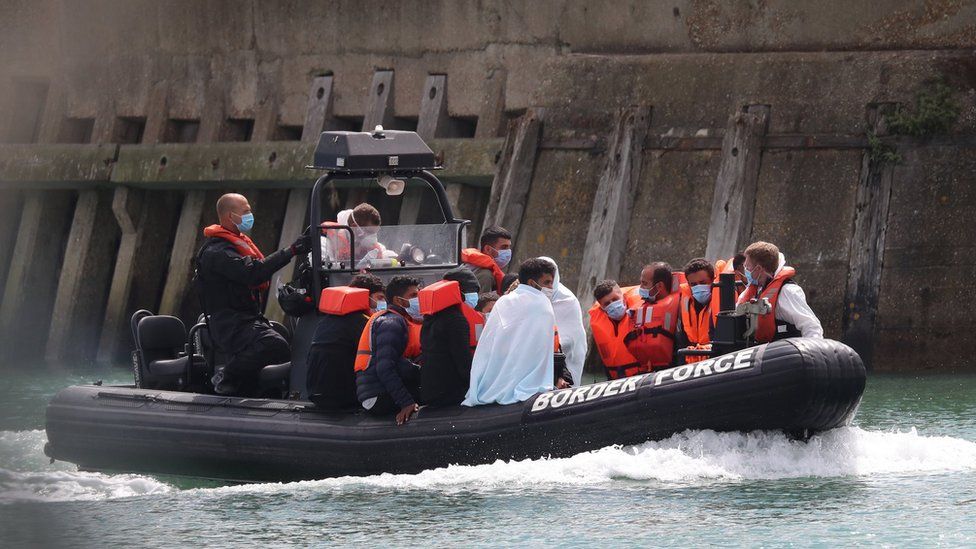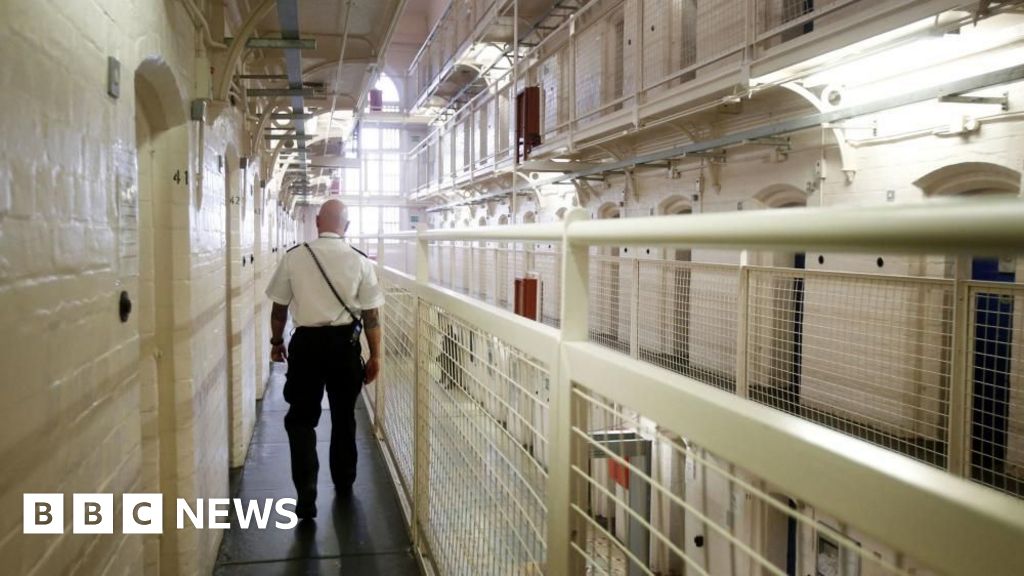ARTICLE AD BOX
 Image source, PA Media
Image source, PA Media
By Sam Francis
Political reporter, BBC News
Plans to draft 150 judges to run a new fast-track appeals system for Rwanda deportations have been unveiled.
More than 100 staff have already been hired to support a new system hearing appeals against deportation orders, the justice secretary said.
Last year's Illegal Migration Act proposed the new courts to stop migrant appeals clogging up the justice system.
It comes as MPs begin debate on a bill aimed at reviving the PM's plan to send some asylum seekers to Rwanda.
The extra resources are designed to deal with criticism from some Conservative MPs that individual appeals against deportation to Rwanda will clog up the courts and should be disallowed entirely.
Justice Secretary Alex Chalk said the changes will free up 5,000 additional sitting days to hear asylum cases.
MPs have begun debate on the Safety of Rwanda Bill in the Commons.
In a bid to deter people from trying to get to the UK across the Channel in small boats, the government wants to send some asylum seekers to Rwanda. Labour has criticised the policy as an expensive "gimmick" and says it would prioritise tackling the smuggling gangs.
The government's Rwanda policy was blocked by the Supreme Court on the grounds of concerns about the safety of the east African country.
Following the court decision, the government introduced the Safety of Rwanda Bill which states that in UK law, Rwanda is a safe country.
Prime Minister Rishi Sunak is facing a challenge to his authority as two deputy Conservative chairmen said they would back a string of rebel amendments to his flagship Rwanda bill.
Streamline process
In a bid to assuage concerns about legal challenges, ministers have announced plans to hire more judges from the current First-Tier Tribunal system to the new Upper Tribunal to deal with Rwanda appeals.
Judges will receive additional training and will be paid more to sit on evenings and weekends. The government has also created 25 additional hearing rooms to deal with cases.
The move is designed to centralise complex migration cases and appeals, streamlining the process.
Home Office analysis has found 99.5% individual legal challenges under the Illegal Migration Act will fail. But there is still a risk that large numbers lodging appeals will clog up the system sufficiently to delay and frustrate their removal.
The Ministry of Justice has been working with the judiciary since last summer to put in place extra capacity into the system ahead of implementing the Rwanda policy.
The justice secretary said it would be for the judiciary to decide whether additional judges would need to be deployed on a temporary basis.

 1 year ago
81
1 year ago
81








 English (US) ·
English (US) ·